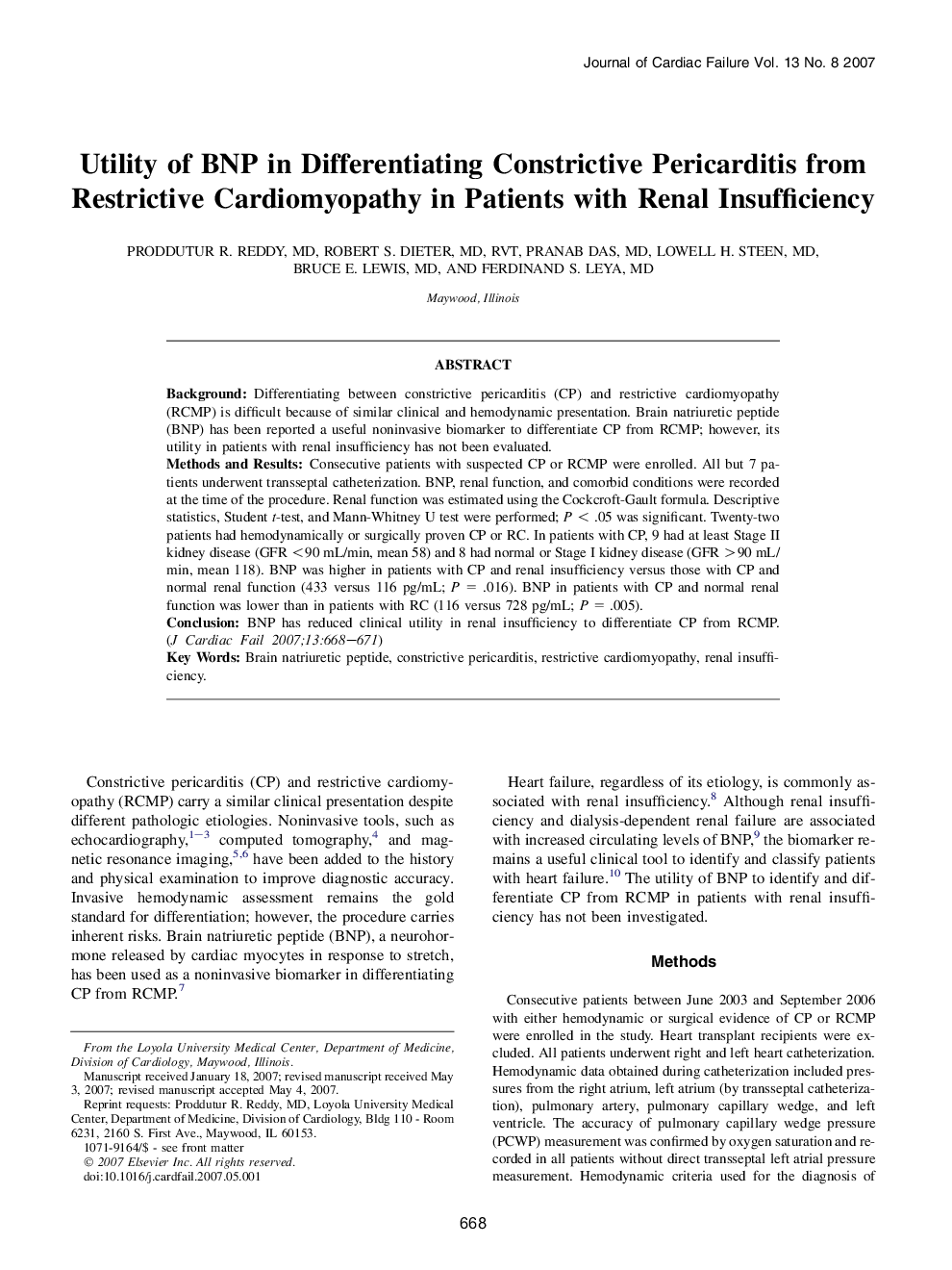| Article ID | Journal | Published Year | Pages | File Type |
|---|---|---|---|---|
| 2962421 | Journal of Cardiac Failure | 2007 | 4 Pages |
BackgroundDifferentiating between constrictive pericarditis (CP) and restrictive cardiomyopathy (RCMP) is difficult because of similar clinical and hemodynamic presentation. Brain natriuretic peptide (BNP) has been reported a useful noninvasive biomarker to differentiate CP from RCMP; however, its utility in patients with renal insufficiency has not been evaluated.Methods and ResultsConsecutive patients with suspected CP or RCMP were enrolled. All but 7 patients underwent transseptal catheterization. BNP, renal function, and comorbid conditions were recorded at the time of the procedure. Renal function was estimated using the Cockcroft-Gault formula. Descriptive statistics, Student t-test, and Mann-Whitney U test were performed; P < .05 was significant. Twenty-two patients had hemodynamically or surgically proven CP or RC. In patients with CP, 9 had at least Stage II kidney disease (GFR <90 mL/min, mean 58) and 8 had normal or Stage I kidney disease (GFR >90 mL/min, mean 118). BNP was higher in patients with CP and renal insufficiency versus those with CP and normal renal function (433 versus 116 pg/mL; P = .016). BNP in patients with CP and normal renal function was lower than in patients with RC (116 versus 728 pg/mL; P = .005).ConclusionBNP has reduced clinical utility in renal insufficiency to differentiate CP from RCMP.
